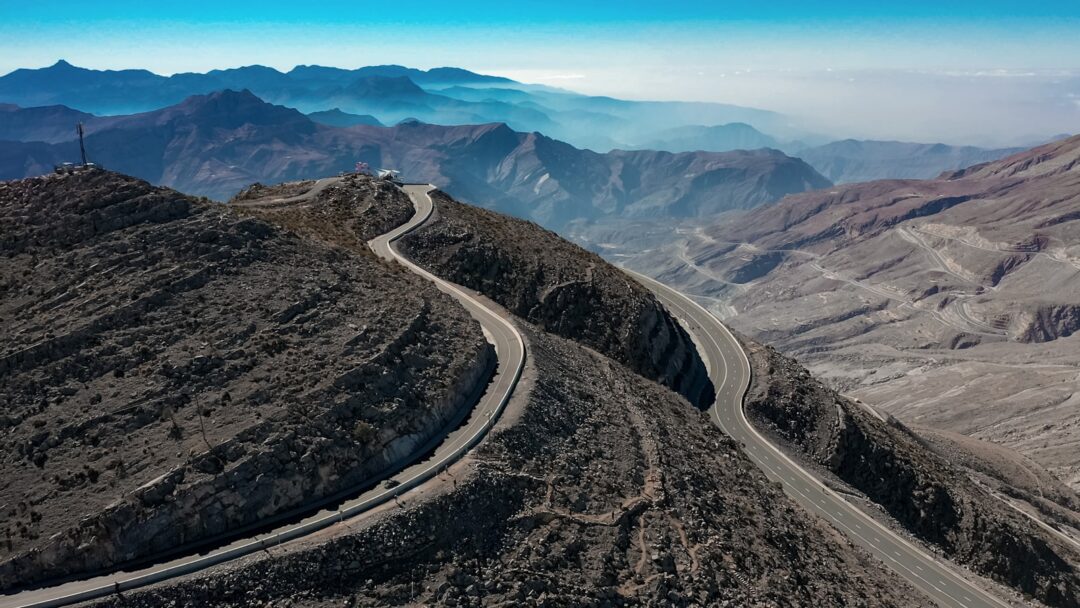How the United Arab Emirates is Transforming Tourism with Cutting-Edge Technology
Smart Technologies on Tourism in UAE are redefining the travel experience, positioning the Emirates as a global leader in the integration of innovation and tourism. This strategic fusion aims to enhance tourist satisfaction, streamline operations, and bolster the economy.
Enhancing Tourist Experiences with AI and the Metaverse
The use of Artificial Intelligence (AI) in UAE’s tourism sector has revolutionized the way services are delivered. AI-powered chatbots provide 24/7 customer service, offering instant assistance and travel advice to tourists. This not only improves customer satisfaction but also reduces the workload on human staff, allowing them to focus on more complex customer needs.
Moreover, the UAE is pioneering the use of the Metaverse to offer unique travel experiences that blend the real and virtual worlds. For example, Dubai’s virtual reality parks allow visitors to experience extreme sports or historical events in a completely immersive environment. These innovative offerings significantly enhance the attractiveness of the UAE as a travel destination.
By improving personalized travel recommendations through machine learning algorithms, the UAE ensures that tourists have memorable and highly customized experiences during their visits. These technologies analyze user preferences and behaviors to suggest tailored travel itineraries and activities that align with individual interests.
Streamlining Operations with Blockchain Technology
Blockchain technology is being deployed to streamline operations in the UAE tourism sector. By using blockchain to manage reservations and payments, the UAE can offer a more secure and efficient booking experience. Tourists benefit from quicker check-ins and check-outs, with less paperwork and fewer chances for errors, which enhances overall trip satisfaction.
This technology also adds an extra layer of security for travelers, as all transactions are recorded on a secure and tamper-proof ledger. Blockchain’s inherent security features protect against fraud and ensure that personal and financial information is safe, making it an ideal choice for international travelers concerned about privacy.
Additionally, blockchain facilitates seamless travel by simplifying visa and customs procedures. Through a unified digital identity secured on the blockchain, tourists can experience faster and smoother entry processes at borders, enhancing the ease of travel and tourism across the Emirates.
Driving Business Success and Sustainability
Smart technologies not only enhance the tourist experience but also drive business success and sustainability in the UAE’s tourism industry. Digital tools enable more accurate demand forecasting and resource allocation, ensuring that businesses can operate more efficiently and reduce waste.
The integration of smart sensors and IoT in tourism infrastructure helps monitor environmental conditions and crowd distributions, which is crucial for preserving historical sites and natural areas. By using data-driven insights to manage tourism flows, the UAE actively protects its cultural and environmental heritage while delivering a high-quality visitor experience.
Moreover, the adoption of these technologies aligns with the UAE’s broader economic diversification goals. By leading in tourism innovation, the UAE not only strengthens its position as a top global destination but also sets new standards for sustainable and technologically advanced tourism practices worldwide.
Facilitating Cultural Engagement through Augmented Reality
Augmented Reality (AR) is enhancing the way tourists interact with the UAE’s rich cultural heritage. By using AR apps, visitors can see historical sites and museums come to life, providing a dynamic way to learn about the past and the diverse cultures that have shaped the Emirates. These AR experiences not only make learning more engaging but also more accessible, appealing to a younger audience and potentially increasing tourist numbers.
For example, in Dubai, AR applications allow tourists to visualize the architectural evolution of the cityscape over decades. By pointing their devices at certain viewpoints, visitors can overlay historical images over current scenes, offering a unique perspective on Dubai’s rapid development. This innovative use of technology serves to deepen visitors’ appreciation of the UAE’s achievements and heritage.
Furthermore, AR technologies help to preserve sensitive archaeological sites by minimizing the physical impact of tourism. Virtual reconstructions of archaeological digs or heritage sites allow visitors to explore without causing damage, ensuring these important sites remain intact for future generations.
Improving Accessibility and Inclusivity in Travel
The implementation of smart technologies also promotes greater accessibility and inclusivity within the UAE tourism sector. Advanced technologies like voice recognition and real-time language translation apps make it easier for people with disabilities and non-Arabic speakers to navigate and enjoy their travels in the UAE.
These tools not only facilitate communication and mobility for all tourists but also reflect the UAE’s commitment to creating an inclusive environment for visitors from around the world. By removing barriers to access, the UAE is setting a welcoming stage for international tourism and reinforcing its reputation as a accommodating and forward-thinking destination.
In addition, smart wearable devices can provide navigational assistance and location-based services to tourists with visual or mobility impairments, ensuring that travel experiences are enriching and accessible to everyone, regardless of physical ability.
Leveraging Big Data for Enhanced Tourist Insights
Big Data analytics are playing a crucial role in transforming the UAE tourism industry by providing deep insights into tourist behaviors and preferences. By analyzing large datasets collected from various sources such as social media, travel reviews, and online bookings, UAE tourism authorities can identify trends and patterns that help optimize marketing strategies and improve service offerings.
This data-driven approach allows for the customization of travel experiences and the development of targeted promotional campaigns that resonate with specific demographic groups. For instance, understanding the preferences of millennial travelers can lead to the creation of adventure tourism packages or eco-friendly travel options that are more likely to attract this segment.
Moreover, Big Data analytics aid in resource management and planning, ensuring that facilities are appropriately staffed and that amenities meet the current demand. This not only improves operational efficiency but also enhances the overall visitor experience by ensuring that tourist needs are met promptly and effectively.
#UAETourism, #SmartTechnologies, #ArtificialIntelligence, #Blockchain, #DubaiSmartCity, #AbuDhabiInnovation, #TourismTechnology, #MetaverseExperiences









